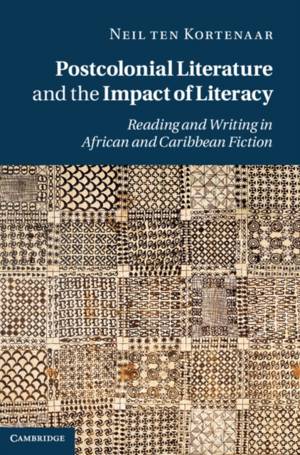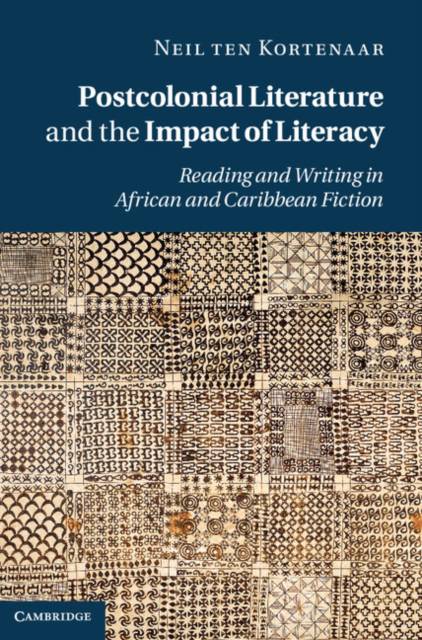
Door een staking bij bpost kan je online bestelling op dit moment iets langer onderweg zijn dan voorzien. Dringend iets nodig? Onze winkels ontvangen jou met open armen!
- Afhalen na 1 uur in een winkel met voorraad
- Gratis thuislevering in België vanaf € 30
- Ruim aanbod met 7 miljoen producten
Door een staking bij bpost kan je online bestelling op dit moment iets langer onderweg zijn dan voorzien. Dringend iets nodig? Onze winkels ontvangen jou met open armen!
- Afhalen na 1 uur in een winkel met voorraad
- Gratis thuislevering in België vanaf € 30
- Ruim aanbod met 7 miljoen producten
Zoeken
Postcolonial Literature and the Impact of Literacy
Reading and Writing in African and Caribbean Fiction
Neil Ten Kortenaar
Hardcover | Engels
€ 93,95
+ 187 punten
Omschrijving
Examining images of literacy in African and West Indian novels, Neil ten Kortenaar looks at how postcolonial authors have thought about the act of writing itself. Writing arrived in many parts of Africa as part of colonization in the twentieth century, and with it a whole world of book-learning and paper-pushing; of school and bureaucracy; newspapers, textbooks and letters; candles, hurricane lamps and electricity; pens, paper, typewriters and printed type; and orthography developed for formerly oral languages. Writing only penetrated many layers of West Indian society in the same era. The range of writers is wide, and includes Chinua Achebe, Wole Soyinka and V. S. Naipaul. The chapters rely on close reading of canonical novels, but discuss general themes and trends in African and Caribbean literature. Ten Kortenaar's sensitive and penetrating treatment of these themes makes this an important contribution to the growing field of postcolonial literary studies.
Specificaties
Betrokkenen
- Auteur(s):
- Uitgeverij:
Inhoud
- Aantal bladzijden:
- 232
- Taal:
- Engels
Eigenschappen
- Productcode (EAN):
- 9781107008670
- Verschijningsdatum:
- 11/07/2011
- Uitvoering:
- Hardcover
- Formaat:
- Ongenaaid / garenloos gebonden
- Afmetingen:
- 155 mm x 229 mm
- Gewicht:
- 476 g

Alleen bij Standaard Boekhandel
+ 187 punten op je klantenkaart van Standaard Boekhandel
Beoordelingen
We publiceren alleen reviews die voldoen aan de voorwaarden voor reviews. Bekijk onze voorwaarden voor reviews.











